#iñárritu
Explore tagged Tumblr posts
Text
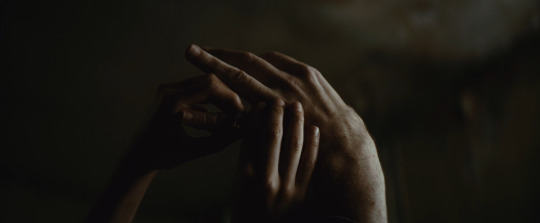

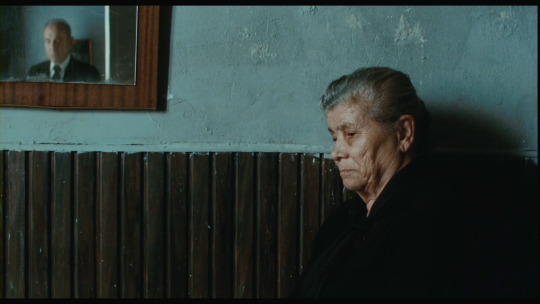
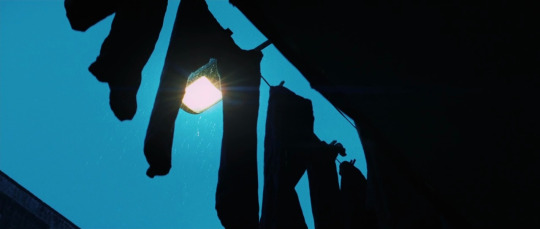
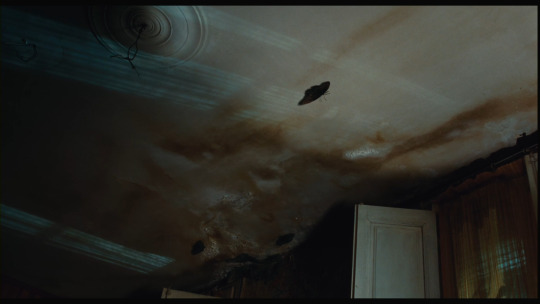
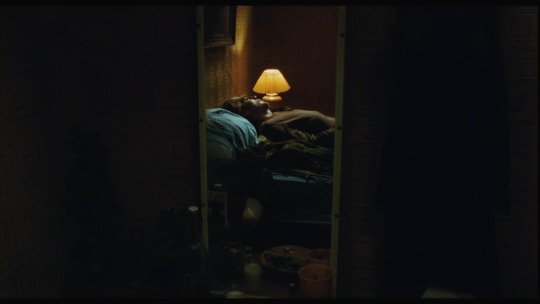
Biutiful, dir. Alejandro González Iñárritu (2010)
22 notes
·
View notes
Text
#birdman#favorite films#emma stone#michael keaton#alejandro g iñárritu#iñárritu#alejandro gonzález iñárritu#inarritu#on humility#you’re not special#and that’s fine btw
2 notes
·
View notes
Text
soberana maría
0 notes
Text



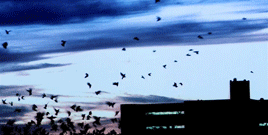


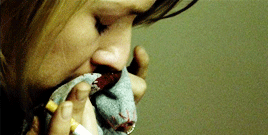

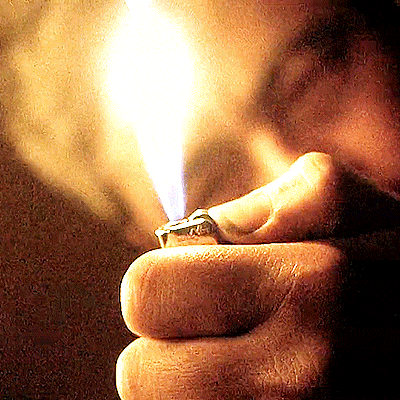
21 Grams (2003) Dir. Alejandro González Iñárritu.
1 note
·
View note
Text















"Lo madreador no te quita lo pendejo"
Gael García Bernal as Octavio in Amores perros (2000, Alejandro González Iñarritu)
#gael garcia bernal#gael garcía bernal#how long can i make this gifset? yes.#amores perros#en el 2000#alejandro gonzález iñárritu#alejandro gonzalez inarritu#ggbedit#gael garcia#gifs#filmedit#filmgifs#dailyworldcinema#moviegifs#dailyflicks#usertennant#cinemasource#tuserdana#fyeahmovies#tuserdenise#userladyhawke#smoking /#i color balanced the blue remaster but im not happy with a couple ah well#ggb filmography rewatch
695 notes
·
View notes
Text










Academy Award for Best Picture:
People, they love blood. They love action. Not this talky, depressing, philosophical bullshit.
Birdman or (The Unexpected Virtue of Ignorance) (2014, dir. Alejandro G. Iñárritu)
#dailyflicks#birdman#filmedit#tw: violence#my gifs#alejandro gonzález iñárritu#inarrituedit#oscars#best picture#oscarsedit
254 notes
·
View notes
Text
Michael Keaton featured in The Rake Magazine (Issue 96)

Freaking amazing in those suits and b&w (more in the link).




#michael keaton#beetlejuice#interview#the rake magazine#johnny dangerously#knox goes away#beetlejuice beetlejuice#goodrich#birdman#mr. mom#batman (1989)#clean and sober#much ado about nothing#tim burton#alejandro gonzález iñárritu#kenneth branagh
42 notes
·
View notes
Text

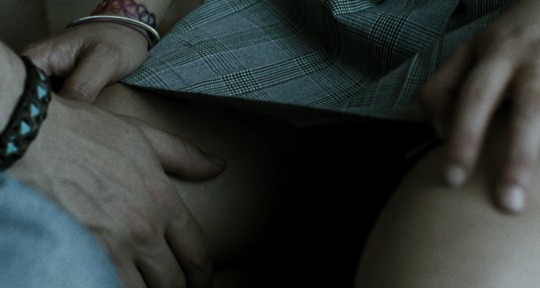
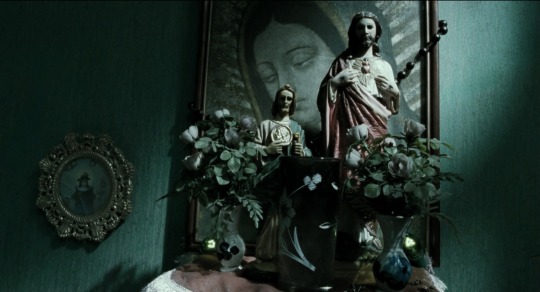
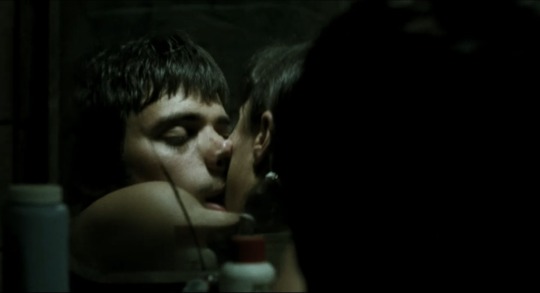
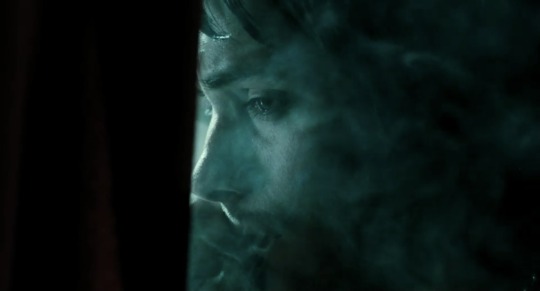
“My grandmother used to say, ‘To make God laugh, tell him your plans.’”
Amores Perros (2000) dir. Alejandro González Iñárritu
#amores perros#alejandro gonzález iñárritu#gael garcía bernal#vanessa bauche#emilio echevarría#goya toledo#film screencaps#film stills#films#screencaps#cinematography
607 notes
·
View notes
Text







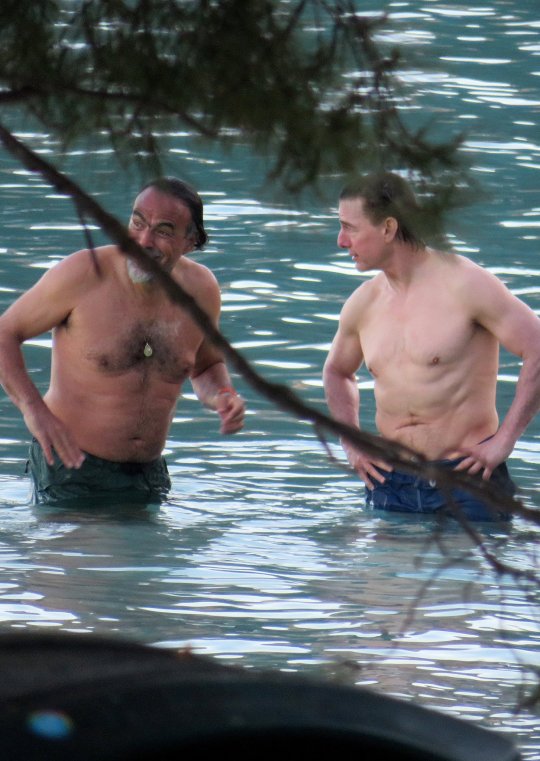


Tom Cruise with Alejandro G. Iñárritu at Mollarco, potentially preparing their upcoming film together!
#tom cruise#alejandro g. iñárritu#alejandro gonzález iñárritu#cruise updates#celebrities#celebrity sightings#celebrity
85 notes
·
View notes
Text
Babel (2006) Alejandro González Iñárritu
24 notes
·
View notes
Text

Biutiful, Alejandro González Iñárritu
#biutiful#alejandro gonzález iñárritu#2010#2010s#10s#javier bardem#mexico#spanish#movie#film#cinema#cinematography#screencaps#stills
20 notes
·
View notes
Text
“We can’t understand what is happening to something if we aren’t looking. Nothing is going to happen to that some thing if we don’t look deeply.
That’s why so many things with incredible potential go unnoticed, because nobody bothers to look. Like Schrödinger says, what you see in the world is what you get, and that determines our destiny. Vitality or mortality is determined by what we choose to see in the Other.”
— Alejandro G. Iñárritu
0 notes
Text
Perfect Blue, Black Swan, and Birdman
It is common knowledge that Perfect Blue and Black Swan have cinematic and thematic similarities. I'd like to argue Birdman (2014) shares just as much with these other two films. Outlined below are some of the most notable commonalities.
The Art Imitates Their Real Life:
This is the major narrative device shared by all three films. The protagonists are all artists playing a role in a performance; Mima: a TV actor, Nina: a ballerina, and Riggan: a thespian. They are unaware of how closely the plight of their characters mirrors their own struggles. While pushing themselves to perform better, the line between their reality and the story they are performing starts to blur.
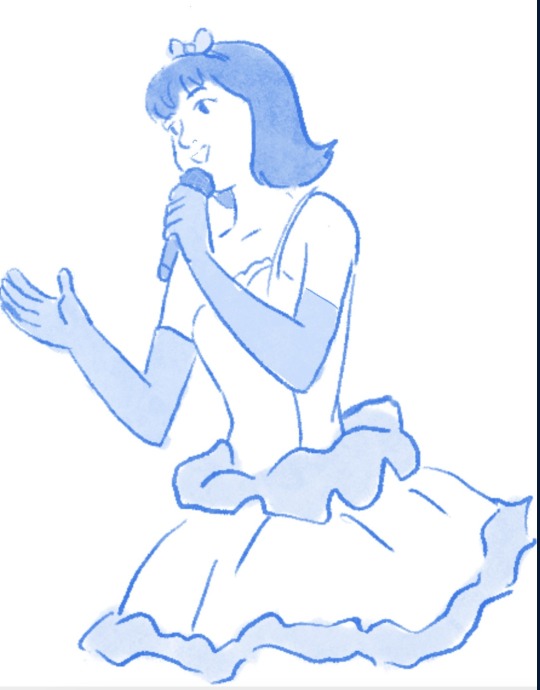
-Perfect Blue:
The Reality:
Mima is trying to make the leap from pop idol to actor. She has a “bit part” at first in the TV show Double Bind, but her manager Mr. Tadokoro campaigns for her to have more screen time. The producers agree, but it involves taking on a role that exploits her sexually. Mima's conflict with her old self and new self tear her apart. Those working on the show around her start getting murdered.
Notable moment: This scene especially highlights the overlap:
Mima is sitting in a chair with the doctor, it appears they are shooting a scene in Double Bind.
Doctor: Can you tell me your name?
Mima: Me? I'm Mima Kirigoe.
Doctor: Okay. And what do you do?
Mima: I'm a pop idol... no, an actress.
Doctor: That must be hard work.
Mima: It's hard, but it's what I chose to do.
We pull back to see detectives watching through a double-sided mirror.
Detective: She thinks she's a new young actress named Mima Kirigoe.
The doctor comes out and joins the detectives.
Doctor: Dissociative Identity Disorder. In other words, "multiple personality syndrome." All those crimes took place when she was some other persona.
Detective: So where's the persona of the original Yoko?
Doctor: Yoko Takakura, the original persona.....is nothing more than a character in a drama for her. Being a "normal" girl... how she was raped in a strip club. Everything happened as part of her drama series. By doing so, she salvaged her heart.
Mima presses her face into the mirror.
Mima: That's right. I'm an actress.
Director: Cut!
The footage rewinds. Mima is sitting in a chair with the doctor, it appears they are shooting a scene in Double Bind.
Doctor: Can you tell me your name?
Mima: Me? I'm Rika Takakura.
The doctor comes out and joins the detectives.
Doctor: The original persona, Yoko Takakura, no longer exists. By killing, and later becoming, her sister the top model, she salvaged her heart.
Mima presses her face into the mirror.
Mima: That's right. I'm a model.
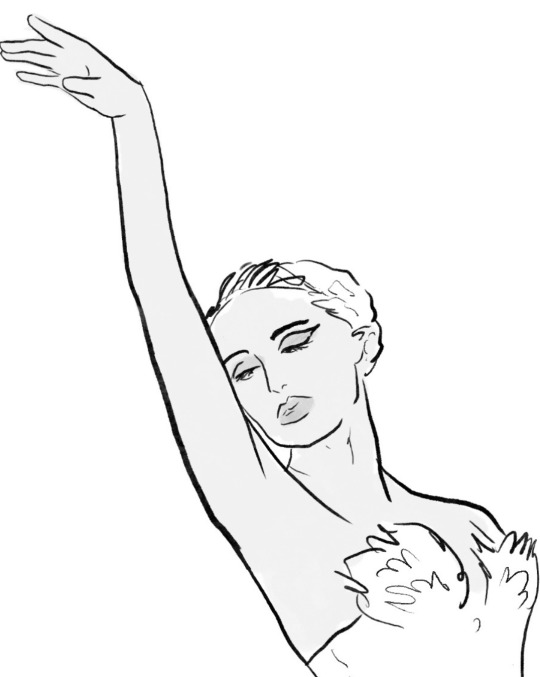
-Black Swan:
The Story:
Thomas: We all know the story: virginal girl, pure and sweet, trapped in the body of a swan (Odette). She desires freedom, but only true love can break the spell. Her wish is granted in the form of a prince (Sigfried). But before he can declare his love, her lustful twin, the Black Swan (Odile) tricks and seduces him. Devastated, the White Swan leaps off a cliff, killing herself. But, in death, finds freedom.”
The Reality: Nina is auditioning for the lead role in Swan Lake, a dual performance as White Swan and Black Swan. In an out-of-character moment, she wins over the director Thomas, and lands the role. A fellow ballerina, Lily, visually similar but a dancer in every way Nina is not, catches the eye of Thomas and to a lesser extent, the man playing the actual prince. Nina isn’t interested in the prince, but it’s still a blow to her ego. At the end of opening night she likely dies of a self-inflicted wound.
Notable moments:
1) In the ballet (but not featured in the film’s adaptation), there is a ball for the prince with all the eligible bachelorettes in the kingdom. At this point, the prince has already met Odette at the magic lake, but before she can arrive, Rothbart's (Evil Sorcerer, the reason Odette is a swan) daughter Odile appears disguised as Odette and tricks him into falling in love with her.
In the film, this is recreated by Lily stepping in for Nina when she oversleeps one morning. She plays Nina’s role beautifully, and Thomas finds himself moved by her performance. When Nina arrives and takes back performing her role, she sees Thomas’s eyes stray from watching her to look at Lily.
2) Thomas shouts this to Nina as she rehearses the finale:
Thomas: The Final Act. Your Final Dance. You’ve tasted your dream. Touched it. Only to have it crushed. Your heart is broken, wounded. Your lifeforce fading. The blood drips. The Black Swan has stolen your love. There's only one way to end the pain. You're not at all fearful. Filled with acceptance. You look down at Rothbart, and then at the Prince, and, yes, up at the audience...And jump!”
This is foreshadowing the finale of the ballet and the events of the film. Nina, in full delusion, thinks she’s tussled with and killed Lily in her dressing room, but has actually stabbed herself with glass. With the shard deep in her own belly, Nina performs the finale, gracefully gesturing to her prince, Rothbart, and her mother, every line Thomas shouted to her all the more true. Then she jumps.
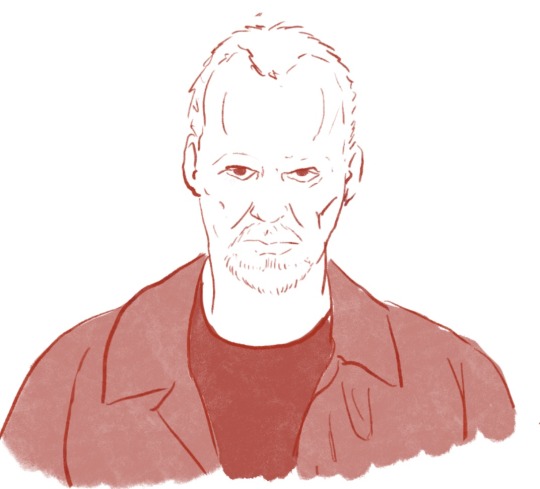
-Birdman
The Reality: Riggan confuses adoration with love, but in many ways so do his fellow actors, all craving a similar validation through acting. Off the stage, their lives are messy, especially their romantic ones. Most off-stage conversations are often philosophical ones.
Riggan's is the least obvious because the source material is lesser known and less developed to the audience, but the story he's performing as a whole doesn't matter so much. Mike even comments in a fit during their first preview about how Riggan's adapted the work. (Riggan is the writer, producer, and star)
Mike: This is Carver, man! The guy lost a piece of liver every time he wrote a page! If I’m supposed to drink gin then bring me fuckin gin! I mean, you fucked the time period! You took all the good lines for yourself!"
The scenes chosen for us to see demonstrate the clear overlap between “What We Talk About When We Talk About Love" and Riggan's life.
Notable examples:
1) Riggan’s girlfriend and fellow performer Laura’s character has a monologue in the play:
Laura: In the days before Nick’s depression really started to eat away at him, he had no idea I was pregnant. And I never intended on telling him. I guess we make choices in life, and we choose to live with them. Or not. I didn’t want that baby... Not because I didn’t love Nick. And not because I didn’t love the-- The idea of it. But because I just wasn’t ready to love myself.
Before we see her perform this the first time, Laura tells Riggan she might be pregnant. The second time is after she confirms she is not. Laura wants a baby, but based on Riggan’s reaction he isn’t into it.
2) Riggan (as Ed) barges in on Lesley (as Terri) and Mike (as Mel) in a hotel room. Terri left Ed for Mel and Ed has hunted them down to confront his ex.
Riggan: What's wrong with me? Why do I end up having to beg people to love me?
Lesley: Ed. Eddie. Please... Give me the gun. Just look at me. I was drowning. I was not capable of-- You deserve to be loved. You do.
Riggan: I just wanted to be what you wanted. Now I spend every fucking minute praying to be someone else. Someone I'm not. Anyone…
This scene from the play is portrayed as the finale, and we see it performed three times. Riggan is desperate in his quest for love and validation, unaware that he is searching for it in the wrong places, like chasing after an old lover. It's relevant that Mike is his ex's new lover (in the play). Riggan is envious of him, his acting ability, and the respect and notoriety he has in the industry. Also, how he can quickly connect with his daughter (who Riggan is somewhat estranged from).
In the play, Ed at first wants to kill his wife's lover Mel, and maybe his ex-wife, but in the end he turns the gun on himself. On opening night Riggan uses a real gun and shoots himself in the head.
The Shadow Self:
-Perfect Blue: A pop Idol was something Mima strived to be, but her group CHAM is stagnant. Mima, with the encouragement of one of her managers, decides to change careers to be an actress. It’s unclear how much of it was Mima’s idea, but she commits. Mima privately struggles through this change, and the chorus of upset fans and doubtful industry folks don't help. This triggers Mima’s "old self” AKA "Pop Idol Mima" to start appearing, often during moments when Mima struggles with the sexual aspects of her new career. Pop Idol Mima is forever in her frilly pink get-up from the opening number of the film, frozen in time, perfect and pure. Pop Idol Mima resists and criticizes Mimi’s changes.
It isn’t revealed until the end of the film that Mima’s “shadow” is one of her agents, Rumi. This is in regards to the “Mima” that is communicating to her stalker and controlling the content of the website “Mima’s room.” Together they post intimate details and thoughts from “Mima” herself. The apparition of Pop Idol Mima she sees following her is only Rumi some of the time and mostly is Mima hallucinating in moments of emotional distress.
-Black Swan: It’s not a coincidence that Nina, dressed in pastels and a white feathery scarf, spies a woman on the train who looks just like her, but in black, on her way to the first day of the new ballet season. We are actually seeing Lily (Mia Kunis, a fellow dancer) for the first time on the train, but this is also the moment when Nina sees her first glimpse of "Black Swan Nina", the part of herself that she is not in touch with.
Nina is challenged to find her inner black swan, because as the lead she must play both the white and black swan characters. As she pushes herself, she sees Black Swan Nina inflicting self-harm, on the faces of other dancers or Lily. The lines between Lily and Black Swan Nina are often blurred, but there is doubt as to whether she's even seeing Lily during Black Swan Nina moments.
-Birdman: Right away we hear the gravelly voice of Birdman talking to Riggan, but we don’t know who it is yet. Birdman is the superhero character he is most famous for playing. Birdman berates him over his choice to leave the role behind throughout the film, enticing him to get some plastic surgery, work out, and get back into the suit to start making real money again. Birdman openly acknowledges that he is a voice in Riggan’s head, only physically appearing twice in the movie in moments where Riggan is most in his delusions and imagining he can fly.
The Rival / The Double:
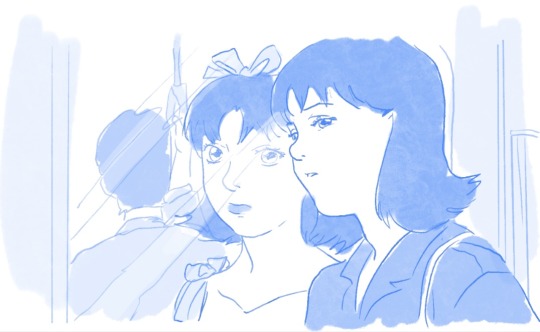
-Perfect Blue: Mima’s rival is mostly her shadow self, Pop Idol Mima. In the acting world, she has no one she is directly competing with. Her former bandmates are doing better since Mima left, and that wounds her, but she is trying to leave that life behind. As mentioned, Pop Idol Mima is sometimes Rumi, who is competing with Mima. Rumi is envious Mima got more famous than she ever did as a pop idol, and links Mima's success with her own, so when Mima decides to leave being a pop idol, Rumi takes it as a very personal betrayal.
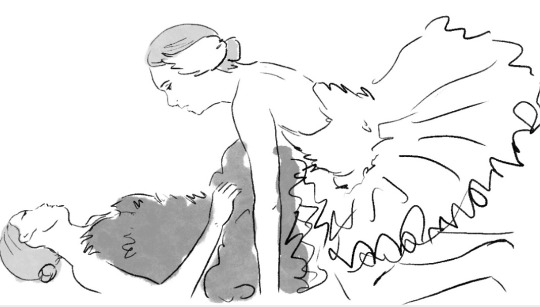
-Black Swan: It’s a new season and Lily, a dancer in the ballet who possesses similar physical attributes to Nina but embodies the effortless freedom Nina lacks, joins the troop. Nina has struggled for everything she has achieved. We see how regimented her life is, how micro-managed her eating is, and the physical toll ballet takes on her body. Whereas Lily comes in late and doesn’t need to warm up, even after a night of partying. She climbs up the ranks quickly with her magnetic ease.
Lily becomes all the more a threat when she is made Nina’s understudy. When Nina is late, she steps in and performs both parts in a way Nina could only dream of. Lily catches the eye of the director Thomas and the man playing the part of the Swan prince. Nina is more upset about Thomas, but she is frustrated because she has no chemistry with her prince whereas Lily does.

-Birdman: After Riggan’s co-star gets hit in the head with a stage light (maybe on purpose), Mike, (Edward Norton) is brought onto the project, injecting excitement into the crew and prospective audience. Mike is renowned in the business for eating, sleeping, and breathing “the stage.” Life is a stage to Mike, and he may just be full of shit, but he is what Riggan wants to be seen as.
Mike gets more interested in the project and even helps Riggan punch up the script, but it quickly becomes clear Mike is in it for himself. In the first preview Mike throws a drunken tantrum when Riggan takes away his real booze on stage. During the next performance Mike tries to have actual sex on stage with his girlfriend and has a very real boner for all to see in the last scene. He even steals Riggan's tale of why he's doing this play (a childhood encounter with Carver) and tells it in an interview.
The Antagonist:
Who is pushing our protagonist, and who doubts them?
-Perfect Blue: Mr. Mi-Mania is Mima’s biggest fan. When Mima makes the career change, he does not accept it and is encouraged by the “true Mima”(Pop Idol Mima) to save her from the industry folks pushing her on the new career path and tarnishing her image. He does this by murdering some of the people working around Mima.
-Black Swan: Thomas, the director, would have chosen Nina to be the star if she was only playing the white swan. Nina does sway Thomas to give her the role, but he relentlessly pushes Nina on and off the stage to give him the unrestrained performance he wants for the black swan.
-Birdman: The critic Tabitha Dickinson is the word in theater, with her opinion making or breaking a play. She loathes Riggan for thinking he can just waltz onto Broadway from playing a superhero in order to write, produce, and star in his own production. She vows to write a bad review regardless of what she sees opening night.
The Old You:
Perfect Blue and Birdman are more obviously similar because their “old self” was a very different public persona. Mima was a pop idol, and Riggan was a blockbuster superhero. They were so well known for these roles and the image associated with them that they struggled for their professional peers and fans to see them in a more serious light.
Nina is staying within her profession, but she is trying to make the move from being a girl in the chorus to playing the lead. And this year the lead ballerina must play two characters who are in stark contrast with each other. Nina is perfect for the innocent White Swan, but she must also embody the seductive Black Swan. Her colleagues are doubtful she can play the Black Swan, a temptress who steals the prince away. Her mother also wants to keep her in "White Swan Mode" as a completely codependent child, lamenting "What happened to my sweet girl?" at one point as Nina begins to rebel, exploring independence and sexuality.
-Perfect Blue: Pop Idol to actress.
-Black Swan: Chorus to star / White Swan to Black Swan.
-Birdman: Action movie star to stage actor.
The Death Bow:
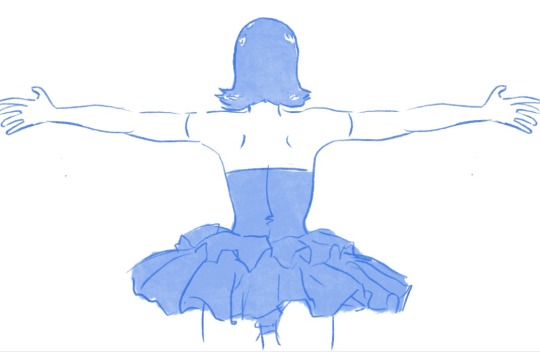
-Perfect Blue: Rumi, in full Pop Idol Mima delusion, hunts Mima down to kill her because there can only be one "Mima." After a brutal struggle in an alley, Rumi is stabbed in the stomach by a glass shard while retrieving her wig. Rumi then staggers into the streets and puts her wig back on. An oncoming truck's lights deceive Rumi into thinking she's in the spotlight with all her fans cheering. Envisioning herself as Mima, she joyfully soaks it in, before the real Mima pushes her out of the way to safety.
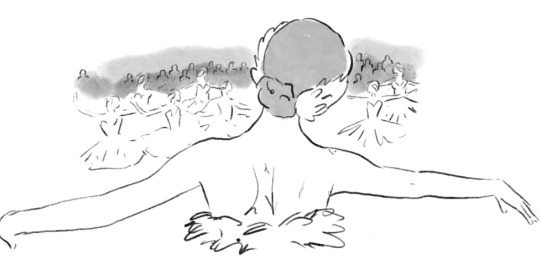
-Black Swan: Opening night, Nina performs the finale perfectly, but we see in the climactic moment before she dives off stage that the wound she inflicted on herself is very real and all the more fatal because of her strenuous final performance. After she dives onto the mattress everyone rushes to her side to congratulate her. The crowd cheers, and her colleagues come to congratulate her. They notice her injury and are distressed. Nina doesn’t care, she looks up into the stage lights, blissed out, everything goes white. Perhaps she is starting to pass out or die. The cheering continues.
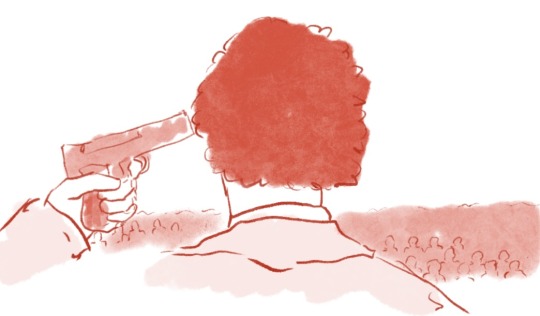
-Birdman: Riggan’s character Ed is in utter despair after breaking into his ex-wife's hotel room and finding her with another man. She says she doesn't love him anymore. Throughout rehearsals, Mike has pressed Riggan for realness, complaining about everything from the booze to the gun on the set being fake. On opening night Riggan has a real gun. Ed is supposed to turn the gun on himself, but Riggan hasn’t made up his mind on who to shoot yet. He feints shooting Mike, then the audience, but he settles on himself. The audience at first is blown away by his performance, giving him a standing ovation only to realize it's very real.
Mortal Wound:
All three protagonists are severely wounded. Nina and Riggan's "mortal wound" leads to their “death bow”, but in Perfect Blue it is Mima's “double/shadow-self” manager Rumi who is deluded in that final moment.
-Perfect Blue: Rumi tries to kill Mima, and stabs her in the side with an umbrella. Mima is only saved after tearing off Rumi's wig. Distressed, Rumi bends over broken glass to retrieve it, stabbing herself in the stomach.
-Black Swan: Nina tussles with Lily in her dressing room, thinking Lily is trying to take over the lead role. They shatter a mirror, and Nina stabs Lily in the guts with a big shard. However, it was all a hallucination: Nina stabbed herself. The show must go on, so Nina finishes the performance brilliantly. We don't know what happens to Nina afterward.
-Birdman: Riggan is supposed to pretend to shoot himself in the play, but on opening night he intentionally uses a real gun. This doesn't kill him, but in the hospital Riggan likely commits suicide by jumping out a window.
Hollowness Of Fame:
-Perfect Blue: The world of pop idols was just as critical of a woman's appearance and behavior as it is for actresses. The constant feedback from the public's expectations of who she is and should be almost causes Mima to completely lose her sense of self.
-Black Swan: All the girls in the troop want to be the prima ballerina and once Nina has this part she sees the dark and fleeting side of this coveted role through the character Beth. The audience wants someone new and fresh and when they are tired of you or you're considered too old, you are quickly cast aside.
-Birdman: Riggan is desperate for public recognition. How he wants to receive it has changed. It used to be through his blockbuster movies, but now he wants to be seen as a stage actor. He values fame over his relationships. In a scene where his ex-wife comes to talk to him about their daughter, Riggan gets sidetracked telling this story: RIGGAN: The last time I flew here from LA, George Clooney was sitting two seats in front of me. With those cufflinks, and that... chin. We ended up flying through this really bad storm. The plane started to rattle and shake, and everyone on board was crying... and praying. And I just sat there-- Sat there thinking that when Sam opened that paper it was going to be Clooney's face on the front page. Not mine.
What Do You Really Want?:
The three protagonists are trying to achieve "greatness" in their career field, but what deeper need is this success trying to fill? What does the character actually want?
-Perfect Blue: Mima wants to find herself.
Mima doesn't start the film wanting this, but when she starts to lose her identity she realizes how important it is to her. The finale scene of the movie catches up with Mima sometime in the future. Her hair is longer and her clothes more fashionable and mature. She has just finished visiting Rumi, who rarely returns to that personality. Two nurses whisper that the person they see looks like the actress Mima Kirigoe, but that she has to be a look-a-like. Mima gets into her car, looks into the mirror, sees her reflection, and to the audience says, "No, I'm real!"
This is a hard-earned moment because Mima lost her sense of self. It was only until her final struggle with Rumi that she realized:
Rumi: We don't need two Mimas!
Mima: I AM MIMA!
Rumi: That's funny! Mima is a pop idol! You're just a dirty old impostor!
Mima: LIKE I CARE! I AM WHO I AM!!
Mima in this moment finally stops attaching her sense of self to her career.
-Black Swan: Nina wants to be perfect.
Nina starts the movie and ends the movie with this desire. When Nina finally ”kills" the part of her holding herself back and finds the black swan, she dances uninhibited and free as both the black and white swan, a performance unmatched. She takes her final leap as the white swan. This may be Nina's last performance because she has severely wounded herself. “It was perfect” is the last thing she mutters. Nina learns, tragically, what it takes to be "perfect."
-Birdman: Riggan thinks he wants fame and adoration, but it’s actually love.
Riggan is addicted to these two things. They are his biggest temptations to play Birdman again. Birdman is constantly pointing out which celebrities are doing superhero movies and how much money they are making. But Riggan resists, hoping to get the fame and adoration he craves through the theater instead, an art much more highly regarded. Before Riggan's opening night, his ex-wife points out that he confuses adoration with love. At the end of the film, in the hospital where Riggan is recovering from shooting himself on stage, he at last has the fame and adoration he was desperate to gain. However, it doesn't heal him because it’s not actual love.
Delusions:
Along with “seeing” their shadow self, each protagonist has another destructive delusion.
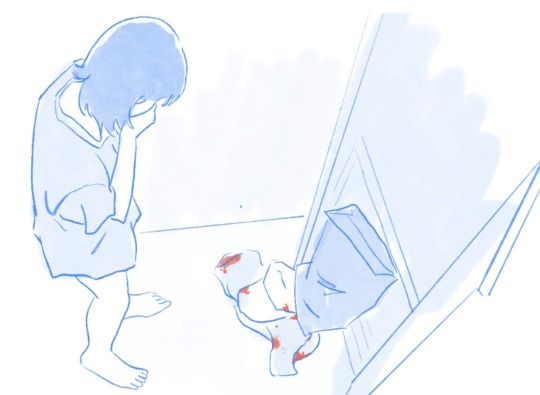
-Perfect Blue: The lines between the murders occurring in the show Double Bind and the actual deaths of those involved in the production get very murky. Is Nina dreaming she's killing people or is she actually the culprit?
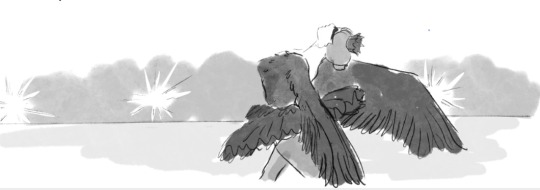
-Black Swan: Nina’s coping mechanism for the emotional and physical stress she endures is picking and scratching at her skin. As she loses control more and more, her picking becomes more intense and the reality of what's going on with her body gets murky. What starts as a little picking at a hangnail turns into Nina pulling the skin off down her finger. The itchy skin on her back turns into budding feathers. Is she turning into the black swan?

-Birdman: The opening shot of the film has Riggan sitting cross-legged in his underwear meditatively floating. Throughout the film Riggan imagines he has telekinesis, bringing objects closer to him and possibly making a light fall and injure the costar he wanted to get rid of. In one scene he runs off a rooftop and flies away, landing outside the theater. An angry cab driver yells at him to pay his fare.
My Music:
Our three protagonists have and are aware of their leitmotifs.
-Perfect Blue: Mima is going to make a special appearance with CHAM, but before the event she has a shoot with a photographer who presses her into a much more revealing session. This causes Mima a lot of distress, so Pop Idol Mima appears and says she’ll take over. She joins CHAM dressed in her frilly outfit and does the choreography and lip sync for "Angel of Love" (The CHAM song the movie opens with) instead of performing the actual song being played.
It’s a little different from the other two films, but Mima is synonymous with"Angel of Love." It’s also blasted on a boombox when the writer for Double Bind is murdered.
-Black Swan: Nina oversleeps for rehearsal and her mother doesn’t wake her up. When she arrives, she hears the white swan's music playing, commenting to herself “My music?” and is startled to see Lily has stepped in to perform her part. It wounds Nina to see another girl dancing to her music.
-Birdman: After Riggan spends a drunken night on the street he wakes the next morning to Birdman pumping him up. Riggan imagines he’s in a Birdman movie and blockbuster explosions and a giant bird robot appear in the background. He makes it to a rooftop and he cues the music by muttering “Music.” As his overture starts to play, Riggan, lost in his delusions, “flies” off the building.
Who You Could Become:
Should the character fail or lose their way, there is a reminder or warning of what their possible future could look like.
-Perfect Blue: Rumi, a bitter ex-pop idol turned agent who never got over her “failure” to make it to the top. Rumi projects herself on Mima, seeing her as everything Rumi had hoped to be. Rumi takes Mima's career change as a personal betrayal.
-Black Swan: Beth, the former Prima Ballerina whom Nina looks up to. She was Thomas's star, his "Little Princess," but the industry is cruel and women age out of "star" material quickly. Heartbroken by the forced ending of her career and loss of Thomas’ affection, Beth self-destructs.
Nina's mother is another glimpse at her possible fate. Her career was cut short because she got pregnant, but we don't know if she was ever on track to being a star. Nina's mother put all her energy and hope into her daughter's career as a ballerina, but also resents her successes.
-Riggan: There is not a specific character in Birdman who represents the fate that could befall him, but the threat of failure is just as present as in the other two films. Riggan’s play could flop, no one could take him seriously as a stage actor, he could lose all the money he invested, his daughter could lose even more respect for him, and he could become more of a has-been than ever.
A Sapphic Element:
Take this one lightly, but all three have it! Black Swan explores this in much more depth, whereas Perfect Blue’s and Birdman’s have it just kinda tossed in.

-Perfect Blue: During the initial scene discussion of Mima’s career change it starts with a clip of Mima acting. She is in bed, another woman in lingerie crawls towards her, and Mima then anguishes "I can’t do this!”
-Black Swan: Nina has been kept a child by her mother. As she dances the Black Swan more and more, she starts exploring her sexuality. While she is attracted to Thomas, she is also drawn to Lily. Does Nina want to be Lily or be with Lily? Nina even has a wet dream about the other girl.
Birdman: Laura, Riggan’s girlfriend and fellow actor, comments that their co-star Lesley has a perfect ass. After Mike tries to have sex with Lesley onstage, a distressed Lesly is comforted by Laura, who makes a pass at her which isn’t rebuffed.
Some Birdman and Black Swan only:
Birds:
A bit obvious, but Birdman and Blackswan both reference birds in their titles and stories.
-Black Swan: Nina is performing the story of Swan Lake, which is about a pure maiden who is transformed into a swan. Nina can easily play this part; her transformation is in embodying the black swan. Nina begins to have hallucinations that she is physically becoming the black swan throughout the film: pulling feathers out of her back, her legs bending wrong, and her neck growing into the shape of a bird's. When she finally finds the character in her performance, Nina envisions herself growing black wings, the transformation complete.
The narrative embraces the symbol of flight and freedom associated with birds. In one scene Riggen looks to be attempting suicide from the roof of a building, and we see him run off and fly away. He lives in the moment, soaring over the city and touching down in front of the theater. At the end of the film, Riggan does jump from his hospital window, but his daughter looks up to the sky and smiles as if he truly took flight. Also noteworthy: after Riggan shoots himself in the face, blowing his nose off, his face cast looks similar to his Birdman mask.
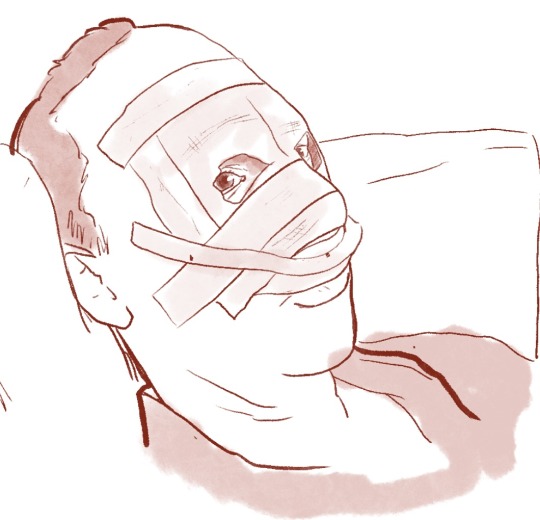
The Protagonist Catches Their Double Coping A Feel Backstage:
It’s their big night, but the double is having all the fun.
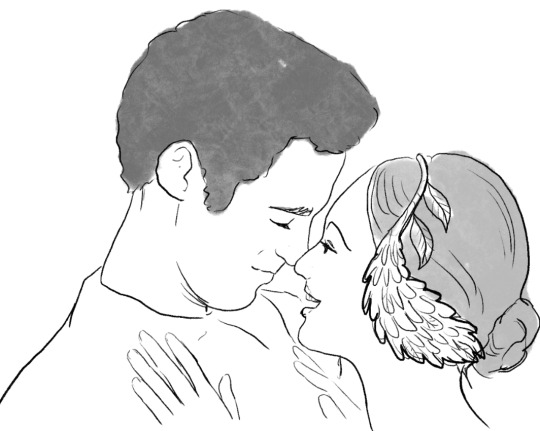
-Black Swan: It’s opening night. Nina and her Prince do an elegant performance together but as soon as they reach backstage the Prince immediately distances himself from her. There is no affection between them. While Nina waits for her next moment on stage she sees the Prince with Lily, and Lily cops a feel of his package.
-Birdman: Riggan is preparing to go on stage. He spies Mike coming to the back of the stage, Riggan’s daughter Sam in his arms. They are happy and at ease in each other’s arms, and they kiss.

Hope you enjoyed my little comparison! Let me know what ya'll think!
Thank you Cal for editing!
-Julia
#black swan#birdman#perfect blue#comparison#Darren Aronofsky#satoshi kon#movie comparison#essay#Alejandro González Iñárritu
54 notes
·
View notes
Text

21 Grams, 2003.
29 notes
·
View notes
Text



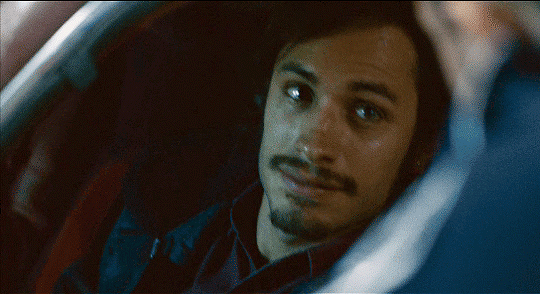
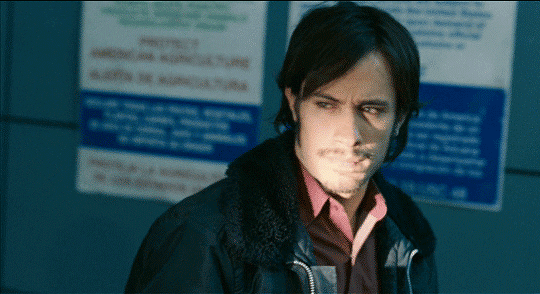
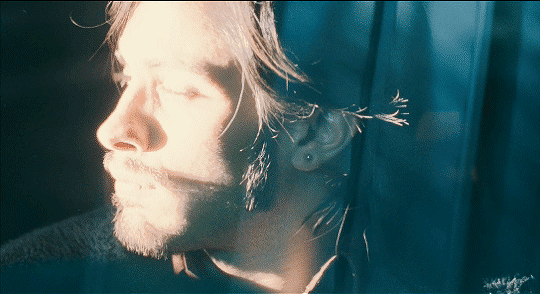
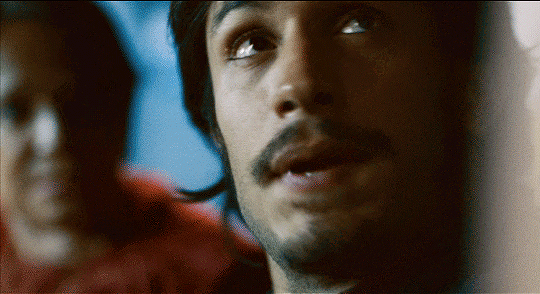
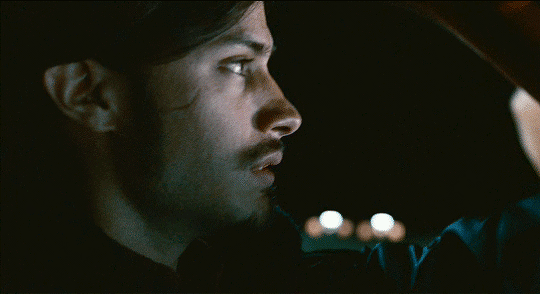
Gael García Bernal in Babel (2006, dir. Alejandro González Iñárritu)
Gifs are all 540px wide so you can click to see larger.
[other gael filmography gifsets]
#gael garcía bernal#babel#ggb filmography gifs#this one is surprisingly difficult to gif#because almost the only place we get any steady shots of giffable length of gael is in the border crossing scene#he's IN a lot of the mexico scenes but generally in short choppy shots or with the camera whirling around#it's almost as if iñárritu was prioritising the cinematography and the audience rather than future gif makers#the nerve of it#gael garcia bernal#babel 2006
31 notes
·
View notes
Text
Alejandro González Iñárritu’s upcoming film with Tom Cruise will now be releasing on October 2nd, 2026 replacing The Batman Part 2.


#alejandro gonzález iñárritu#alejandro gonzalez inarritu#tumblr#movies#tv and film#tv and movies#film and tv#film and television#tom cruise#tvandfilm#movie news
12 notes
·
View notes